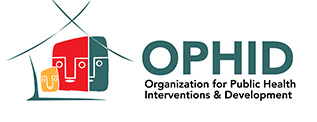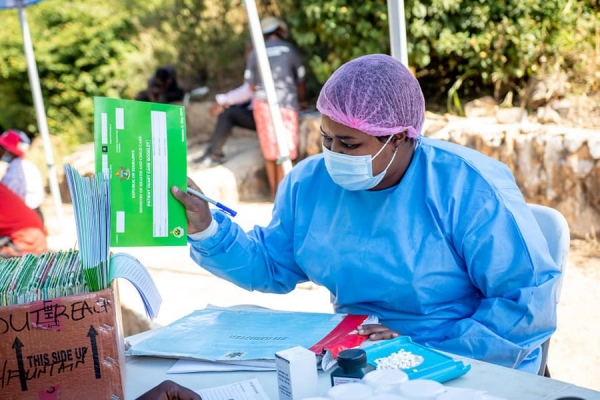In partnership with the Ministry of Health and Child Care (MoHCC) and guided by national strategic plans for HIV Prevention, Care and Treatment, the Target Accelerate and Sustainable Quality Care program which is being implemented by Organization for Public Health Interventions and Development, (OPHID) in a consortium with JF Kapnek and ZNNP+ supports a package of interventions to strengthen health systems, specifically the bridge between facilities and community structures in order to scale up high quality HIV prevention, care, and treatment services.
The program also integrates three of the four USAID/Zimbabwe’s cross-cutting issues, including gender, youth, and governance in the facility and community.
With support from the U.S. President's Emergency Plan for AIDS Relief (PEPFAR) through USAID Zimbabwe, OPHID reached out to Hope Fountain community (Mining Area) in Bulawayo as part of their approach to bring services closer to communities.
In their visit to Hope Fountain, OPHID, offered various health services which include HIV preventive services such as the encouragement of condom use, TB preventive services as well as HIV self-testing, for citizens to always be aware of their HIV status.
As part of the services, OPHID also provided testing, care and treatment services, such as linkage to Antiretroviral Treatment and targeted HIV self-testing equipment distribution. Referrals to facilities for viral load collection and cervical cancer screening was also done as part of the community health service provision.
OPHID are doing this across 15 Districts in Zimbabwe supporting MoHCC in partnership with ZNNP+ and JF Kapnek.
Tavonga Chikwaya OPHID’s Policy Advocacy and Communications Manager said, “A total 33 964 HIV Self-test kits have been distributed between January – March 2021 and consequently, of the 33 964 HIVST kits distributed 47% were distributed in the community which was enhanced by the outreach activities carried out coupled with other approaches.”
“These outreach activities are currently being carried out in hard-to-reach areas like Hope Fountain which is a mining area and at times the communities will be busy to travel to health facilities for services” Tavonga added.
In Zimbabwe, there is a generalized epidemic, with an HIV prevalence of approximately 12.7% among adults aged 15 – 49 years (UNAIDS, 2018). Despite a high prevalence, Zimbabwe is one of the first countries to experience a sharp decline in new infections and HIV related deaths over the past two decades. ZIMPHIA (2016) showed that overall HIV prevalence for adults aged 15-49 was 14.0% in 2016, down from 18.1% in 2005 in the ZDHS2.
OPHID and its partners across 15 districts in Zimbabwe are strengthening the community service provision through community health workers, COA’s, COAC’s and CHASA’s. Additionally, community advocacy and monitoring with ZNNP+’s playing a role to coordinate the community advocacy and monitoring using the established network of CHASA’s.


